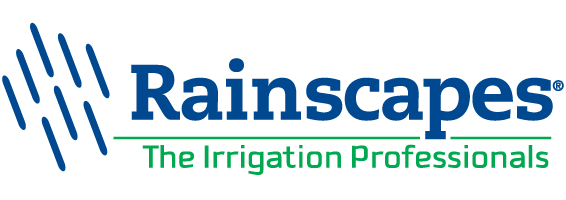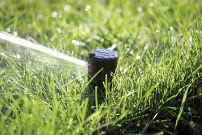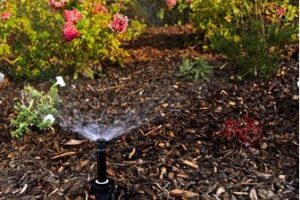
04 Jul Resolving Common Summer Irrigation Issues
During the summer months, maintaining a lush, green landscape in Knoxville can be particularly challenging. The intense heat and dry spells place immense pressure on irrigation systems, necessitating regular upkeep and savvy adjustments to ensure optimal performance. From uneven watering and broken sprinklers to unexpected water bills, a myriad of issues can arise that threaten the health and vibrancy of your lawn and garden.
Rainscapes, renowned for its top-notch irrigation, lawn care, and drainage services in Knoxville, understands these season-specific challenges. Our extensive experience and expertise enable us to diagnose and resolve common summer irrigation problems effectively, helping you maintain a beautiful outdoor space all season long.
In this comprehensive guide, we’ll explore the most frequent summer irrigation issues homeowners encounter, offering practical solutions to tackle them head-on.
Identifying Common Summer Irrigation Issues
Summer brings its own set of challenges for irrigation systems in Knoxville. With higher temperatures and less rainfall, these systems must work harder to keep landscapes hydrated. It’s important to be aware of the common problems that can arise to ensure your irrigation system operates effectively.
Uneven Watering
Uneven watering occurs when some areas of your lawn or garden receive too much water while others get too little. This problem can lead to patches of dry, brown grass alongside overly saturated spots. Uneven watering often results from misaligned sprinkler heads, inappropriate water pressure, or clogged nozzles.
To address this issue, regularly inspect your sprinkler heads to ensure they are pointed in the right direction. Adjust their angles as needed to cover all areas evenly. Checking water pressure is also crucial; too much pressure can cause sprinklers to mist and lose water to evaporation, while too little can prevent water from reaching distant areas. Adjust your system’s pressure settings for optimal performance. Cleaning your nozzles to clear any debris will also help maintain even water distribution.
Sprinkler Malfunctions
Sprinkler malfunctions can disrupt your entire irrigation system. Common issues include broken sprinkler heads, leaks, and clogged filters. These problems can waste water and reduce the efficiency of your system.
Inspect sprinkler heads regularly for any signs of damage or wear. Replace broken or damaged heads promptly to avoid water wastage. Leaks are not always obvious, so it’s essential to look for water pooling around sprinklers or unusually high water bills. Fix any leaks immediately to maintain system efficiency and conserve water. Clogged filters can reduce water flow, so cleaning or replacing filters regularly will help keep your system running smoothly.
Poor Timing and Scheduling
Improper timing and scheduling of irrigation can lead to water waste and unhealthy plants. Over-watering can cause root rot and other plant diseases, while under-watering can stress plants, making them more susceptible to drought.
To prevent these issues, invest time in setting an appropriate watering schedule. Early in the morning is the best time to water your garden, as it allows water to soak into the soil before the day’s heat causes evaporation. Evening watering should be avoided, as it can lead to fungal growth due to prolonged moisture. Adjust your schedule based on weather conditions and the specific needs of your plants.
Inefficient Water Use
Water conservation is crucial, especially during the summer when demand is high, and supply may be limited. Inefficient water use not only impacts your utility bills but also strains local water resources.
One way to improve water efficiency is by using sensors and timers. Soil moisture sensors can help determine when your plants truly need water, reducing over-watering. Timers can be set to water during the optimal times of day, ensuring efficient water use. Additionally, consider grouping plants with similar water needs together to optimize irrigation zones.
Identifying Dry Spots
Dry spots in your lawn or garden can indicate problems with your irrigation system. These areas may remain dry due to inadequate sprinkler coverage, blocked nozzles, or underground leaks.
Walk around your garden and look for areas that seem drier than others. Inspect the nearest sprinkler to make sure it’s functioning correctly. Sometimes, simple adjustments to the sprinkler head can solve the problem. If dry spots persist, there may be an underlying issue, such as blocked nozzles or leaks, which will require further investigation and repair.
Addressing Pressure Issues
Water pressure plays a significant role in the efficiency of your irrigation system. Low pressure can prevent water from reaching all areas, while high pressure can cause sprinklers to mist, leading to water loss through evaporation.
Check your system’s pressure settings regularly. If you notice uneven water distribution or sprinklers producing mist rather than a steady stream, you may need to adjust the pressure. Pressure regulators can be installed to maintain a consistent level. This ensures even water distribution and prevents water wastage.
Maintaining Your System
Routine maintenance is essential to keep your irrigation system running smoothly throughout the summer. Regularly inspect all components, including sprinkler heads, valves, and pipes, for signs of wear or damage. Cleaning components and making necessary adjustments will help prevent problems before they escalate.
Consider scheduling a professional inspection at least once a year to ensure your system is in top condition. Professionals can identify issues that might not be immediately apparent and provide solutions to enhance system efficiency.
Choosing the Right Equipment
The right equipment can make a significant difference in the efficiency of your irrigation system. Choose products that are designed to conserve water and distribute it evenly across your landscape. High-efficiency sprinkler heads and smart controllers can significantly improve your system’s performance.
High-efficiency sprinkler heads are designed to minimize water waste and provide even coverage. Smart controllers can automatically adjust watering schedules based on weather conditions, soil moisture levels, and plant needs. Investing in quality equipment can save water, reduce costs, and maintain a healthy landscape.
Recognizing Water Runoff Issues
Water runoff is a common issue during the summer, especially with improper watering techniques. Runoff occurs when water flows off the surface of the soil rather than soaking in, wasting water and potentially causing erosion.
To prevent runoff, water your lawn and garden slowly and deeply. This approach gives the soil ample time to absorb the water. Instead of watering for a long period all at once, break it into shorter intervals with breaks in between. This method, known as cycle and soak, allows water to penetrate deeper into the soil, reducing runoff and promoting healthy root growth.
Dealing with Clogged Nozzles
Clogged nozzles can lead to uneven watering, causing some areas to remain dry while others are overwatered. Debris, dirt, and mineral deposits often cause clogs.
Regularly inspect and clean sprinkler nozzles to ensure they function correctly. Remove the nozzle and flush it with water to clear any debris. Using a small brush or toothpick can help dislodge stubborn dirt. If clogs persist, consider installing filters at each sprinkler head to prevent debris from entering the system.
Addressing Water Pressure Imbalances
Water pressure imbalances can cause uneven water distribution, making some areas of your lawn thrive while others struggle. High pressure often causes misting, leading to evaporation, while low pressure might prevent water from reaching all areas.
To manage water pressure, check your system for signs of imbalances, such as uneven spray patterns. A pressure regulator can help maintain consistent pressure throughout the system. Additionally, ensure that all sprinkler heads are compatible with the system’s pressure requirements.
Preventing Valve Issues
Valves control the flow of water in your irrigation system, and any malfunctions can lead to either insufficient or excessive watering. Common valve problems include stuck valves, leaks, and electrical issues.
Inspect valves regularly to ensure they open and close correctly. If a valve is stuck, manually operate it to loosen it up. Check for leaks around the valves and tighten connections if necessary. For electrically-operated valves, ensure that the wiring is intact and connections are secure.
Inspecting and Maintaining Pipelines
Underground pipelines are crucial components of irrigation systems. Over time, these pipes can develop cracks or leaks, leading to water loss and uneven coverage.
Inspect your irrigation system for signs of pipeline damage, such as soggy areas in your lawn or unexplained high water bills. If you suspect a leak, consider hiring a professional to locate and repair the damage. Regular maintenance and prompt repairs can save water and improve system efficiency.
Optimizing Irrigation Zones
Each part of your lawn or garden may have different watering needs. Optimizing irrigation zones ensures that each area receives the right amount of water.
Divide your landscape into zones based on plant types, soil conditions, and sunlight exposure. Adjust the watering schedule to match the specific needs of each zone. This approach prevents overwatering and under-watering, promoting healthy plant growth and efficient water use.
Upgrading to Efficient Irrigation Techniques
In addition to maintaining your current system, consider upgrading to more efficient irrigation techniques. These methods can help conserve water and improve the overall health of your landscape.
Drip irrigation targets water directly to the base of plants, reducing evaporation and runoff. Soaker hoses provide similar benefits, allowing water to seep slowly into the soil. Both methods are ideal for garden beds, shrubs, and trees. For lawns, high-efficiency sprinkler heads distribute water more evenly and reduce wastage.
Timing Your Irrigation
The timing of your irrigation plays a significant role in water retention and plant health. Watering during the wrong time of the day can lead to evaporation or prolonged moisture, which can harm your plants.
The best time to water your garden and lawn is early in the morning. This timing allows water to soak into the soil before the sun’s heat causes evaporation. Avoid watering in the evening, as it can leave moisture on the grass overnight, leading to fungal growth. If you use timers, set them to water before sunrise to maximize efficiency.
Understanding Plant Water Needs
Different plants have varying water needs. Understanding these needs can help you adjust your irrigation system to provide the right amount of water for each plant.
Group plants with similar water requirements together. This grouping makes it easier to manage zones and ensures efficient water use. Research the specific needs of your plants to determine how much water they require and how often they should be watered. Adjust your irrigation schedule accordingly to promote healthy and vibrant growth.
Checking Controllers and Timers
Controllers and timers are essential components of your irrigation system. They automate the watering process, ensuring consistent and timely irrigation.
Regularly check the settings on your controllers and timers to ensure they are accurate. Replace batteries as needed and inspect for any signs of wear or malfunction. Keeping these devices in good working order ensures reliable performance and prevents overwatering or under-watering.
Monitoring Weather Conditions
Weather conditions significantly impact irrigation needs. Rain, humidity, and temperature all affect how much water your plants require.
During dry spells, you may need to increase your watering frequency. Conversely, after rainfall, you can reduce or skip watering sessions. Consider using weather-based controllers that adjust the irrigation schedule based on real-time weather data. This technology helps optimize water use and ensures your plants get what they need without waste.
Keeping Your Irrigation System Summer-Ready
Proper irrigation is vital for maintaining a healthy, green landscape during the summer months. By addressing common problems like water runoff, sprinkler misalignment, clogs, pressure issues, and leaks, you can ensure your system runs efficiently. Regular maintenance and timely upgrades to efficient techniques and technologies can further enhance your system’s performance. Understanding soil types and tailoring your watering schedule to match plant needs will also contribute to a vibrant and robust garden.
Remember, consistent monitoring and periodic system audits are essential to catching issues early and making necessary adjustments. Conserving water doesn’t just save you money; it also supports sustainable practices. Properly adjusted and maintained irrigation systems contribute significantly to water conservation, promoting a more eco-friendly approach to gardening.
For comprehensive irrigation solutions tailored to your specific needs, consider reaching out to professionals who can assist with setup, maintenance, and upgrades. At Rainscapes, we specialize in creating customized irrigation plans that ensure your landscape thrives, even under the summer sun. Our team of experts is dedicated to helping you optimize your water use and maintain a beautiful, healthy garden year-round.
Ready to take your irrigation system to the next level? Contact Rainscapes today and let us help you achieve the lush, green landscape you deserve. Visit our website or call us now to schedule a consultation!




Sorry, the comment form is closed at this time.